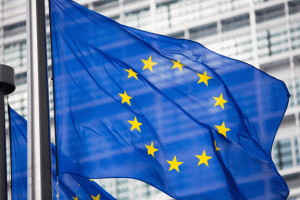Europe’s metals industry seeks a level environmental playing field
Despite the economic and political challenges related to the coronavirus pandemic, the European metals industry is becoming increasingly vocal in trying to form the arguments around its own survival.
Are you under pressure to generate aluminum cost savings? Make sure you are following these 5 best practices!
Making the case
A recent article in the Financial Times — penned, it must be said by the president of Eurometaux, the European Association of non-ferrous metals producers — should not be dismissed as just a PR attempt to lobby Brussels.
The arguments made are repeated across the European metals sector. The arguments nod to social trends supported across the region to tackle climate change issues while trying to protect jobs and local economies.
Europe may not be able to set the world’s agenda. Collectively, however, the E.U. can set Europe’s agenda. In so doing, it can set an example other countries are already showing some interest in adopting.
Lost market share
As the post points out, since the 2008 financial crisis, Europe has lost a third of its primary aluminum production. Meanwhile, China has grown to produce some 60% of the world’s market.
Europe has lost market share for other base metals, too, missing the early boat for the cobalt, lithium and rare earths (used in electric cars).
Like the U.S., Europe has come to realize its dependency on foreign countries for strategic resources comes at its peril.
“The era of a conciliatory or naive Europe that relies on others to look after its interests is over,” Thierry Breton, the E.U. industry commissioner, is quoted by the Financial Times as saying.
Mining and refining in Europe has slashed its collective carbon footprint by more than 60% in the past two decades due to far higher and better-enforced standards in the region. Yet, not surprisingly, Europe’s metals sector cannot compete with subsidized imports from China and other regions.
A level playing field
But drawing on parallel commitments to achieve carbon neutrality by 2050, the region’s industry is making the case for creating a level playing field. That level playing would come not simply by imposing quotas but by applying a financial cost to imports that come with significantly higher carbon and environmental costs.
The wider industry is buying into the idea of products having a lower carbon footprint as a brand strength.
The LME is launching a low-carbon aluminum spot contract to promote and facilitate growing demand for metal with a definable carbon footprint.
Some producers are already onboard.
Rusal is at the forefront of promoting its primary metal as coming wholly from renewable (hydroelectric) sources. European metals producers may not have such a clear advantage in terms of power supply. However, a combination of technologies, practices and power sources means each ton of metal Europe produces emits on average eight times less carbon than its equivalent from China.
The industry wants the E.U. establish a coherent framework to assess, regulate and penalize imports that do not meet the same level of environmental responsibility. That could include a carbon tax on imports that would help level the playing field.
Ultimately, consumers always pay for taxes. However, at least this approach may have the benefit of helping to ensure a sustainable regional metals industry. It could encourage producers elsewhere to lower their environmental impact. Furthermore, it could reduce the supply chain risk of a growing dependence on countries like China that play by a different set of rules.
Want an occasional email from MetalMiner that highlights new content with NO sales ploys? Join that list here.



Leave a Reply